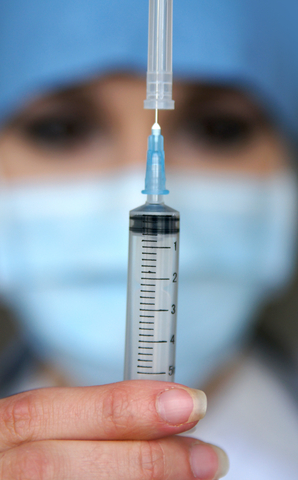by: Dr. Craig A. Maxwell
In my 30 years of practice, it amazes me how many thousands of preventable medical errors occur each year. Statistics have placed the number of patients who die from preventable medical errors each year at 440,000.
That is 129 cruise ships full of human beings killed by medical errors!
In a modern country with exceptional advances in medicine, in my opinion, there is absolutely no excuse for this. Preventable medical errors are often the reason why, even though the United States spends more on healthcare than any other country, it ranks among the lowest in health and longevity.
What Causes Preventable Medical Errors?
- Education
Our medical system too often seems designed to reward doctors who prescribe drugs and surgery and scoff at those who suggest preventative care. From the first year of medical school, aspiring young doctors are transformed from eager healers to burned-out med students who sometimes over-prescribe and take shortcuts wherever possible. It’s not a pretty picture. Though doctors certainly take many courses during their schooling, they spend much of their education learning about procedures and prescribing rather than prevention and wellness.
- Burnout
Many doctors experience burnout at some point in their career, but in hospitals the situation appears to be far worse. Hospital physicians, especially residents, are often assigned unusual work hours and sometimes go for days without adequate sleep or nourishment.
According to studies, over 34% of hospital doctors reported a high level of emotional exhaustion. Still more, over 45%, reported high levels of depersonalization. That is, they see their patients more as objects instead of human beings. Without this feeling of empathy and connectedness, it is much easier to make careless mistakes. To a doctor who is burned out, another patient is yet another “widget” to put together or fix before he can finally get some rest.
- Ego
There are some doctors out there who unfortunately think they can do no wrong. They feel they have the power of life and death within them and nobody can tell them any differently. This kind of mentality causes many doctors to believe they can diagnose and treat without the need to follow necessary medical protocols.
- Money
Surgical procedures pay big; spending time talking to a patient about prevention and lifestyle changes pays very little.
Most Common Preventable Medical Errors
1. Technical Medical Error
Technical medical error accounts for a large amount of medical malpractice suits. Surgeons who have not slept properly in days may accidentally nick an artery during a minor medical procedure and cause death to someone who would have been released from the hospital the next day.
2. Failure to Act on Test Results
Doctors are forced to see a great deal of patients in a short amount of time. They must talk with, diagnose, and prescribe often only in the span of 10 minutes. Something as simple as ignoring a faxed test result in favor of getting to the next patient can mean the difference between life and death.
3. Inadequate Follow-Up Treatment
Oftentimes routine procedures such as the placement of a heart catheter, a colonoscopy, or liposuction have been shown to result in death due to infection and bleeding. Hurried doctors can sometimes treat patients at though they are on a conveyer belt. Diagnose. Prescribe. Suture. Next. Patients not given adequate follow-up care can easily die from preventable infection if their symptoms are not quickly addressed.
4. Delay in Diagnosis
A couple of years ago, a young man I knew went to the hospital complaining of stomach pains. He waited hours in the emergency room and finally got a CAT scan. Though his appendix was found to be inflamed, he was told it would “go away on its own.” By the time his symptoms worsened enough to require surgery, his appendix was only moments away from bursting. Telling a patient to “wait it out” when one of their organs is about to rupture is nothing short of ridiculous.
5. Improper Medication Prescription
This happens so often, it’s unconscionable. Patients are admitted into the hospital, sometimes incapable of speaking for themselves, and doctors are not aware of what medications or conditions are associated with them. A contraindicated medication or the wrong dosage accounts for thousands of deaths each year.
6. Inadequate Patient Instruction Before Procedure
Imagine a patient who takes a daily dose of aspirin to thin his blood and then going into surgery only to bleed to death on the operating table.
7. Inadequate Patient Monitoring After Procedure
Every patient responds to medical procedures and medications differently. This is why it’s so important for patients to be carefully monitored afterward. Burned-out doctors and inadequate staff can sometimes miss signs of patient distress, which can result in permanent injury or even death.
8. Failure to Take Precautions
Physical injuries can happen at any time during a patient’s hospital stay. This often occurs because hospital staff does not take the proper precautions when treating the patient before and after a procedure has been performed.
9. Failure to Use Customary Tests
It is incredible to me how many patients have been diagnosed with stomach ailments when they were in fact suffering a heart attack or a rupturing appendix. Failure to prescribe and use customary tests has resulted in thousands of unnecessary deaths each year.
10. Unnecessary Surgery
Many of my patients come to me after they’ve received what I considered to be unnecessary surgery and lived years or even decades dependent on prescription medication for preventable disease.
How to Protect Yourself from Preventable Medical Errors
- Bring a Health Advocate to the Hospital
If you ever find yourself needing emergency medical care and you’re able to, have someone accompany you to the hospital. Having a trusted friend or family member with you to ask questions and monitor your care keeps doctors and hospital staff in check. Nobody wants a possible witness to unethical or corner-cutting behavior in their medical establishment. Always keep a list of medical procedures, medications, allergies, and emergency contacts on you so that if you are unable to speak for yourself, this information can do it for you.
- Get a Second Opinion
If your doctor has informed you that you need a certain type of medical procedure, get a second opinion if it’s not an emergency. Having the advocacy and support of an osteopathic physician, a naturopathic physician, or chiropractor can offer you natural alternatives to consider before going under the knife or becoming dependent on a prescription medication you might not need.
- Dietary and Lifestyle Changes
The best thing you can do to avoid preventable medical errors is to avoid developing the conditions that would cause you to be hospitalized in the first place.
One of the first things which needs to be addressed with patients is their dietary and lifestyle habits. Weaning off a junk-food diet, turning to whole-food, and addressing nutritional deficiencies clear up nearly 80% of the chronic illnesses my patients have suffered from.
Some of the more common nutritional deficiencies I’ve encountered in my practice:
- Vitamin D3
- Magnesium
- B Vitamins
- Omega 3
- Vitamin C
I explain to my patients that healthy eating alone cannot address severe nutrient deficiencies. The reason you need dietary supplements is because the nutrient density of food has declined by about 50% in the past 100 years. Changes in farming techniques, depleted soil quality, and the introduction of genetically modified food have caused even relatively healthy eaters to suffer from the symptoms of nutritional deficiencies.
This is why I recommend all of my patients start by taking a high quality multivitamin supplement containing these necessary nutrients. I also advise testing for vitamin D3 deficiency. Many of my patients discover that after months of unnecessary procedures and medication, their symptoms disappear after supplementing with vitamin D3.
The best way to learn if vitamin D3 deficiency is weakening your immune system is with the Vitamin D, 25 Hydroxy Test Kit. You can order it online, take it to your nearest LabCorp office, and you and your doctor will have results within 7-10 business days.
Your environment plays a major role as well. Conventional cleaning products, cosmetics, and air fresheners often contain parabens, phthalates, formaldehyde, bleach, BPA, and Triclosan that have all been shown to contribute to the development of neurological and autoimmune disease.
Trading in these common household items for organic alternatives can do wonders to improve your health without the need for constant doctor or hospital visits.
Preventable medical errors can result in a lifetime of chronic health problems and even death. The best way to avoid them is to take your health into your own hands and avoid ending up in the hospital in the first place.
Resources:








